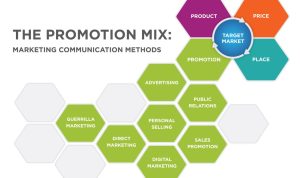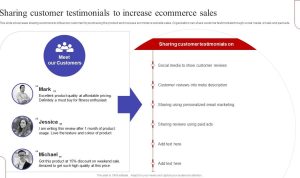Partnering With Clinics to Sell Health Products sets the stage for this enthralling narrative, offering readers a glimpse into a story that is rich in detail and brimming with originality from the outset.
This collaboration not only enhances the accessibility of health products but also establishes a trusted channel for clinics to offer additional value to their patients. Understanding the dynamics of these partnerships reveals the potential to improve patient outcomes while driving sales for health product providers.
In the ever-evolving landscape of technology, the rise of artificial intelligence (AI) has significantly transformed various sectors, impacting the way we live, work, and interact. From healthcare to finance, AI is not just a buzzword; it has become an integral part of modern life, driving efficiencies and enabling innovations that were once thought to be the realm of science fiction.
As we delve into the multifaceted applications of AI, it is essential to explore its influence across different industries, examining both the benefits and challenges it presents. This comprehensive overview aims to shed light on how AI is reshaping our world and what the future might hold for this transformative technology.### The Healthcare RevolutionAI’s impact on healthcare is profound. Through the use of machine learning algorithms and vast data sets, AI can analyze patient data more rapidly and accurately than human practitioners.
This capability leads to improved diagnosis, personalized treatment plans, and even predictive analytics that can foresee health issues before they arise.For example, AI-powered diagnostic tools can evaluate medical images, such as X-rays and MRIs, identifying anomalies with a high degree of specificity. A study published in the journal Nature revealed that an AI system could outperform radiologists in detecting breast cancer.
Such breakthroughs not only streamline the diagnostic process but also enhance patient outcomes by allowing for earlier intervention.Furthermore, AI is revolutionizing drug discovery. Traditionally, this process is lengthy and costly; however, AI can simulate how different compounds will interact with biological targets, significantly speeding up discovery times. Pharmaceutical companies are increasingly leveraging AI to identify potential candidates for new medications, optimizing their research and development pipelines.### Transforming Financial ServicesThe financial sector is another area where AI is making waves.
With the advent of fintech, AI is at the forefront of creating smarter, more efficient financial services. Algorithms can analyze vast amounts of transactional data to detect fraudulent activity in real-time, safeguarding both businesses and consumers from financial losses.In investment banking, robo-advisors powered by AI algorithms provide personalized investment advice based on an individual’s risk tolerance and financial goals. These platforms democratize access to financial planning, allowing users to invest and manage their portfolios with minimal fees.
According to a report by Deloitte, the global robo-advisory market is expected to reach $2.5 trillion by 2023, highlighting the growing trust in AI-driven solutions.Moreover, AI enables better customer service through chatbots and virtual assistants. These AI-driven tools can handle inquiries, process transactions, and provide personalized recommendations, enhancing user experience while reducing operational costs for financial institutions.### Retail: A Personalized Shopping ExperienceThe retail industry is also undergoing significant transformation due to AI.
From supply chain management to customer engagement, AI tools are redefining the shopping experience. Retailers utilize AI algorithms to analyze consumer behavior, preferences, and buying patterns, enabling them to provide personalized recommendations and targeted marketing campaigns.For instance, e-commerce platforms like Amazon use AI to recommend products based on previous purchases and browsing history. This not only improves the customer experience but also drives sales, as customers are more likely to buy products that align with their interests.Additionally, AI can optimize inventory management.
By predicting trends and consumer demand, retailers can manage stock levels more effectively, reducing waste and ensuring that popular items are always available. This data-driven approach leads to improved operational efficiency and higher customer satisfaction.### The Automotive Industry: Driving Towards AutonomyThe automotive sector is experiencing a seismic shift with the introduction of AI-powered technologies. Autonomous vehicles are no longer a distant dream; they are rapidly becoming a reality, thanks to advancements in AI.
Companies like Tesla and Waymo are at the forefront of developing self-driving cars equipped with sophisticated sensors and machine learning algorithms that enable vehicles to navigate complex environments safely.AI plays a crucial role in processing vast amounts of data from vehicle sensors, allowing for real-time decision-making. These systems can identify obstacles, predict traffic patterns, and adapt to changing road conditions.
The implications are profound, with potential benefits including reduced accidents, improved traffic flow, and decreased emissions.Moreover, AI is enhancing vehicle safety features, such as adaptive cruise control and lane-keeping assistance. These systems use AI to analyze driver behavior and environmental factors, providing a safer driving experience for everyone on the road.### Education: Personalized Learning ExperiencesThe education sector is also embracing AI to create more personalized learning experiences.
AI-driven platforms can analyze student performance, identifying strengths and weaknesses to tailor educational materials accordingly. This individualized approach helps students learn at their own pace, improving overall engagement and retention.Moreover, AI can automate administrative tasks, such as grading and scheduling, allowing educators to focus more on teaching and less on paperwork. Intelligent tutoring systems equipped with AI can provide real-time feedback to students, helping them to grasp complex concepts more effectively.As a result, we are witnessing a shift towards adaptive learning environments, where education is not a one-size-fits-all approach but rather a customized experience tailored to the needs of each learner.### The Challenges and Ethical ConsiderationsDespite the numerous benefits of AI, it is crucial to acknowledge the challenges and ethical concerns that accompany its rapid advancement.
Issues such as data privacy, security, and bias in AI algorithms must be addressed to ensure that the technology is used responsibly.Data privacy is a significant concern, as AI systems rely on vast amounts of data to function effectively. Ensuring that user data is protected and used ethically is paramount, particularly as regulations like the General Data Protection Regulation (GDPR) come into play.Additionally, bias in AI algorithms can perpetuate existing inequalities.
If the data used to train these systems contains biases, the outcomes will reflect those biases, leading to unfair treatment in areas such as hiring, lending, and law enforcement. Developing transparent and accountable AI systems is essential to mitigate these risks and build public trust.### The Future of AILooking ahead, the future of AI is both exciting and uncertain. As technology continues to evolve, we can expect further integration of AI into daily life, with advancements in natural language processing, computer vision, and robotics.

The potential for AI to enhance productivity and drive innovation is immense, but it also necessitates ongoing dialogue about its implications.Collaboration between technologists, policymakers, and ethicists will be vital in shaping the trajectory of AI development. Establishing guidelines and frameworks for responsible AI use will help harness its potential while addressing the associated risks.In conclusion, AI is no longer a futuristic concept but a present-day reality that is reshaping industries and transforming lives.
As we navigate this new landscape, embracing the opportunities while confronting the challenges will be critical in ensuring a future where AI serves the greater good. The journey ahead will undoubtedly be filled with innovation, discovery, and the promise of a better tomorrow.
FAQ Compilation: Partnering With Clinics To Sell Health Products
What are the benefits of partnering with clinics?
Partnering with clinics offers enhanced credibility, access to a wider patient base, and the ability to provide patients with convenient access to health products.
How can clinics choose the right health products to sell?
Clinics should consider the needs of their patient population, the quality of products, and supplier reliability when selecting health products.
What type of legal agreements are involved in such partnerships?
Legal agreements typically include terms of sale, liability clauses, and provisions for compliance with healthcare regulations.
How can clinics market these health products to patients?
Clinics can market health products through informational sessions, in-clinic displays, and by integrating product recommendations into patient care plans.
What challenges might clinics face in partnering with health product sellers?
Clinics may encounter challenges such as aligning product offerings with patient needs, managing inventory, and ensuring compliance with healthcare regulations.






